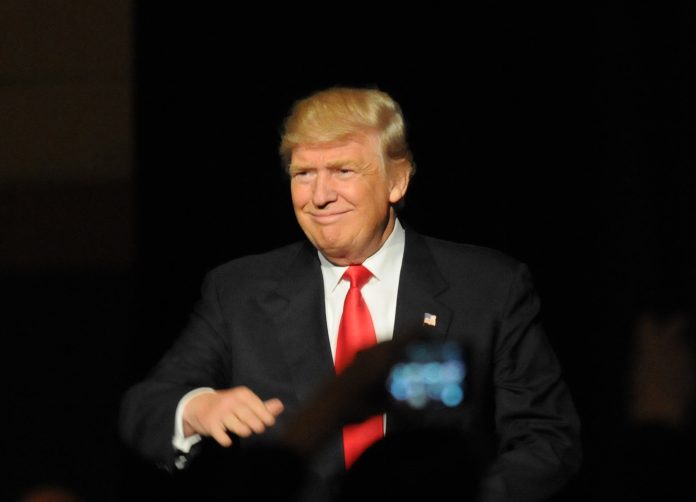(THIS ARTICLE IS MACHINE TRANSLATED by Google from Norwegian)
Mikhail Zygar:
All the Kremlin's Men. Inside the Court of Vladimir Putin
Public Affairs, 2016
 «It's much easier to mobilize the masses to fight Against something, than fight for something. "
«It's much easier to mobilize the masses to fight Against something, than fight for something. "
In 1999, I was 14 years, so I do not remember much from Putin's first term as president, but I do remember what we learned about Russia in the history lessons of high school. It was an endlessly fascinating country with its great empires and all-powerful leaders, but this was precisely the story. Because at the turn of the millennium, the world was characterized by the assertiveness of liberal democracy and what Francis Fukuyama described as "The End of History". Putin's entry into Russian politics did not change this picture. His role model was then Labor leader Tony Blair, and together they were to build alliances for the future.

For millennium leaders, 2016 would look like a mixture of Orwells 1984 and propaganda films from the 1930s. And while center-centered leaders are gradually being replaced by right-wing populists, Putin has changed with the spirit of the times. How did Putin's personality development happen from aspiring liberals to omnipotent and godly nationalist? And what has shaped Russia over the last 17 years? This gives Mikhail Zygar, described by Vice News as «the last journalist in Russia», timely answers to.
American hypocrisy. The relationship with the United States has not surprisingly been a decisive factor in the development of Russian politics. Zygar refers to several interviews and statements in which Putin expresses that the United States has lied, been condescending and come with criticism that in the eyes of the Russian power elite is permeated by hypocrisy. The latter may explain why he prefers Trump to Obama. If we interpret him correctly, he believes that Trump is at least honest about his discriminatory and illiberal attitudes, while former US presidents have denied that they have anything other than peace and liberation on the agenda when they bomb land in the Middle East or hold prisoners at Guantánamo without criminal law basis. In addition, Trump has stated that he does not want to pursue a policy as expansive as his predecessors. A telling example of Putin's frustration over American hypocrisy is Zygar from a press conference in 2014, in which an Associated Press reporter asked about the conditions of freedom of expression in Russia. He writes that "the president flew into a rage: 'You have no moral authority to breathe a word about freedom of speech!'"
Putin prefers Trump to Obama: Trump is at least honest about his discriminatory and illiberal views.
Russia has long been known for controlling large parts of the media, and in the wake of the US presidential campaign, it has become clear to many that it is also common in the American media to operate with "fake news". For a Norwegian reader, therefore, this book contributes with a valuable balancing of the above-mentioned moral authority. In Zygar's chronological review of Putin's four presidential terms (implied that he was de facto President of Dmitry Medvedev's period) he analyzes the foreign policy events from the Soviet period to the present day. Here we see what the American rhetoric looks like from a Russian perspective, and if it is not about directly lying news reporting, it is often about emphasizing and omitting key perspectives. For example, when the Americans created their "axis of evil" and decided to invade Afghanistan and Iraq, and this was presented as a struggle for democracy and freedom, while Russia's annexation of Crimea was presented as an irrational act and a declaration of war, something our own foreign minister himself has expressed on several occasions. Zygar reminds us that Putin had already warned against Ukrainian NATO membership in 2008, and this came as a logical consequence of several incidents, including the US not removing its military base in Kyrgyzstan as promised and the surprise of the Kremlin with its missile shields. in Eastern Europe.
The Church and Gayropa. Putin's aggression against Western and American hypocrisy has made the West's criticism of Russia's human rights abuses seem counterproductive, and it is sad to read how the Russian authorities welcomed the massive coverage of the anti-homopropaganda law passed in the Duma in January 2013. The criticism strengthened the fronts Putin had established, between what Russian Channel One calls "Gayropa" and a Russia built on traditional Christian Orthodox values and nationalism.
However, it may seem that Russia and the United States have struggled for symbolic and geopolitical power with a surprisingly similar development in the population. On the one hand are the defenders of the WTO and the four freedoms of the EU, and on the other are the reactionary and protectionist nationalists (while the left-wing globalization-critical left is currently on the sidelines).
Mikhail Zygar has written an entertaining, thought-provoking and insightful book, but I miss an explanation of why large parts of Russia were ready to accept right-wing populism with open arms. For as the author writes: "Each of us invented our own Putin." This is an important reminder that the focus of the person in politics can be a derailment, for the people are largely mirror images of what is going on at the grassroots. And if there is one task the journalists in the world now have, it is to get this silent majority in speech. Maybe they can be offered something better than an attempt to turn the world 100 years back in time?


